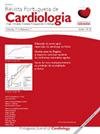The contribution of genetics to the understanding and management of cardiomyopathies: Part 1
IF 1.6
4区 医学
Q3 CARDIAC & CARDIOVASCULAR SYSTEMS
引用次数: 0
Abstract
Genetics has assumed a pivotal role in clarifying the pathophysiology of cardiomyopathies, facilitating molecular diagnosis, and enabling effective family screening. The advent of next-generation sequencing has revolutionized genetic testing by enabling cost-effective, high-throughput analysis. It is imperative for cardiovascular physicians to mainstream genetic testing into their clinical decision-making. Although a definitive genotype-phenotype correlation may not always be evident, several genotypes have emerged as valuable risk predictors for disease severity and progression. European guidelines emphasize the importance of genetic tests for predicting clinical outcome in cardiomyopathies. While further research is essential to bridge existing gaps in the genetic evidence on cardiomyopathies, there is considerable potential for significant advancements.
遗传学对心肌病的理解和治疗的贡献:第1部分。
遗传学在阐明心肌病的病理生理学、促进分子诊断和实现有效的家庭筛查方面起着关键作用。下一代测序的出现通过实现成本效益高,高通量分析,彻底改变了基因检测。对于心血管内科医生来说,将基因检测纳入临床决策的主流势在必行。虽然明确的基因型-表型相关性可能并不总是很明显,但一些基因型已经成为疾病严重程度和进展的有价值的风险预测因子。欧洲指南强调基因检测对预测心肌病临床结果的重要性。虽然进一步的研究是必要的,以弥合现有的差距,遗传证据的心肌病,有相当大的潜力取得重大进展。
本文章由计算机程序翻译,如有差异,请以英文原文为准。
求助全文
约1分钟内获得全文
求助全文
来源期刊

Revista Portuguesa De Cardiologia
CARDIAC & CARDIOVASCULAR SYSTEMS-
CiteScore
2.70
自引率
22.20%
发文量
205
审稿时长
54 days
期刊介绍:
The Portuguese Journal of Cardiology, the official journal of the Portuguese Society of Cardiology, was founded in 1982 with the aim of keeping Portuguese cardiologists informed through the publication of scientific articles on areas such as arrhythmology and electrophysiology, cardiovascular surgery, intensive care, coronary artery disease, cardiovascular imaging, hypertension, heart failure and cardiovascular prevention. The Journal is a monthly publication with high standards of quality in terms of scientific content and production. Since 1999 it has been published in English as well as Portuguese, which has widened its readership abroad. It is distributed to all members of the Portuguese Societies of Cardiology, Internal Medicine, Pneumology and Cardiothoracic Surgery, as well as to leading non-Portuguese cardiologists and to virtually all cardiology societies worldwide. It has been referred in Medline since 1987.
 求助内容:
求助内容: 应助结果提醒方式:
应助结果提醒方式:


